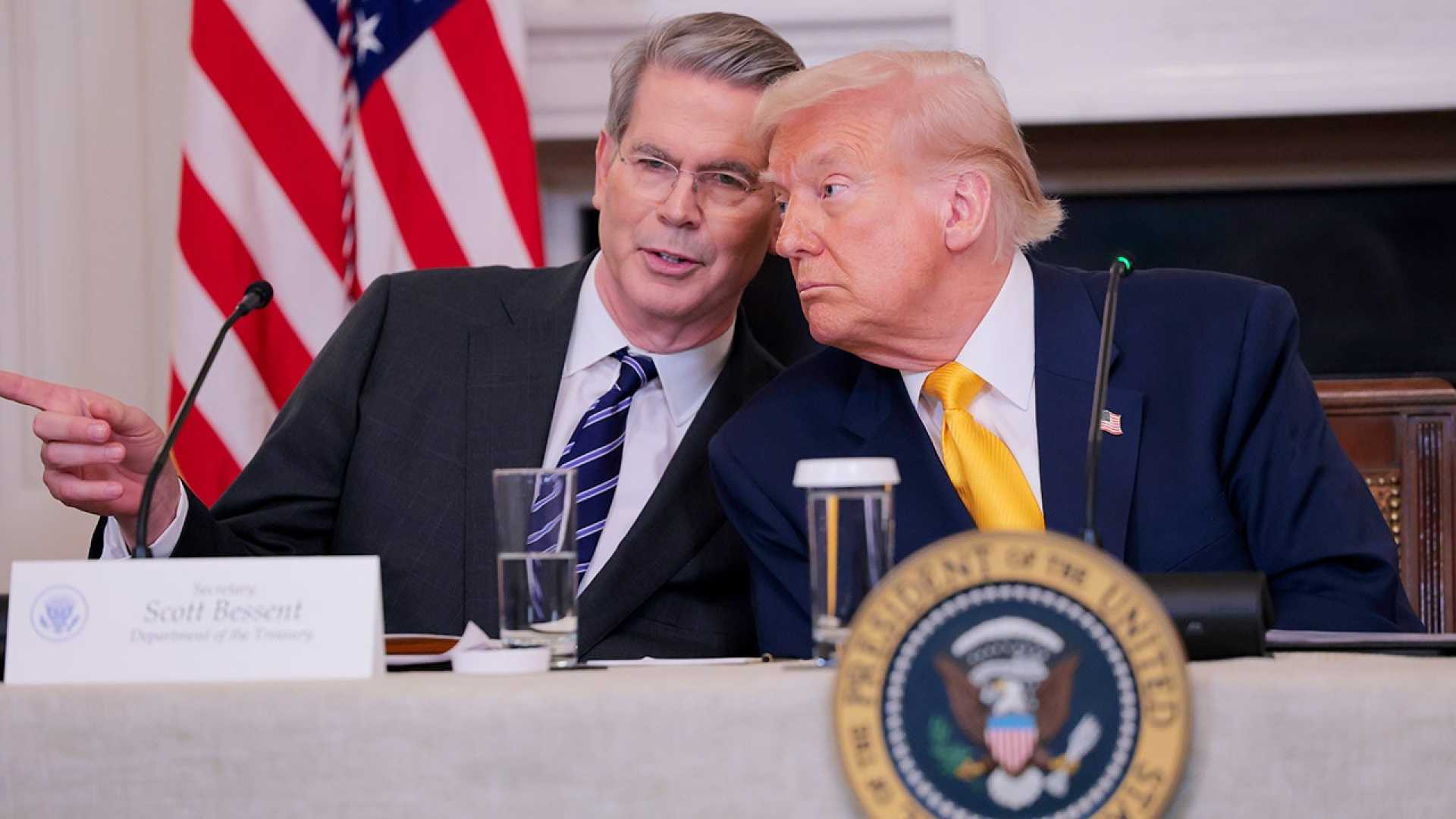Politics
Treasury Secretary Bessent’s Credibility Dwindles Amid Tariff Turmoil

WASHINGTON, D.C. — Treasury Secretary Scott Bessent is reportedly seeking to distance himself from the Trump administration amid criticism over the president’s controversial tariff policies, as highlighted by MSNBC host Stephanie Ruhle on Friday.
Ruhle stated on MSNBC’s *Morning Joe* that sources indicated Bessent is searching for an exit strategy, possibly to the Federal Reserve, due to damaging consequences from Trump’s tariffs that have undermined his credibility in financial markets. “He’s looking for an exit door to try to get himself to the Fed because in the last few days he’s really hurting his own credibility and history in the markets,” Ruhle said.
President Trump’s recent imposition of a universal 10 percent tariff on all U.S. imports, along with punitive tariffs on 180 countries, has rattled stock futures, leading to the most severe drop in the Dow Jones Industrial Average since 2020. Following the announcement, international trading partners quickly moved to retaliate, raising fears of a burgeoning trade war.
Bessent, who amassed a $500 million fortune as a hedge fund manager, has not been a staunch advocate of Trump’s tariff strategies. Reports suggest he has raised concerns over what some observers describe as Trump’s “absurd tariff math.” During his tenure in the administration, Bessent has expressed reservations about the potential repercussions of the tariffs, referring to them as “maximalist” positions.
In October 2024, while serving as an economic adviser during Trump’s campaign, Bessent warned foreign nations against retaliating. “Sit back, take it in, let’s see how it goes,” he stated. “Because if you retaliate, there will be escalation. If you don’t retaliate, this is the high-water mark,” Bessent cautioned at the time.
However, on Friday, China announced its own retaliatory measures, implementing a reciprocal 34 percent tariff on all U.S. imports, further aggravating the stock market tensions. As Bessent navigates these turbulent waters, Ruhle noted the lack of support for the tariffs among Trump’s business allies, highlighting a disconnection between the administration’s policies and economic realities. “I cannot find one single investor with one single argument that makes sense for these tariffs,” Ruhle remarked.
Amid mounting evidence of his waning influence, sources indicate that Bessent is struggling to advise Trump effectively. “He actually understands how the markets work, and what’s happening right now is only going to hurt the markets,” Ruhle pointed out, as she detailed Bessent’s concerns over the president ignoring expert advice.
In light of the current economic climate, Bessent faces a challenging position. Given the implications of the tariffs on consumer prices and markets, many economists and financial analysts are tracing the potential pathways to an impending recession, with estimates of a likelihood growing sharply among market watchers. JP Morgan recently elevated their recession probability forecasts from 40% to 60%.
As public frustration mounts regarding the tariffs and their effects on the economy, Bessent’s credibility may be at stake. The repercussions of this economic strategy could not only impact his role within the administration but also future U.S. economic standing on a global level.












